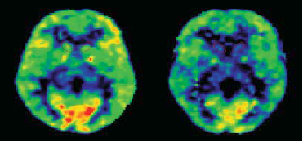What is PTSD?

Post-traumatic stress disorder, or PTSD, is an anxiety disorder that affects survivors of traumatic events, such as:
- experiences in active combat zones,
- sexual assault,
- domestic violence,
- or surviving natural disaster.
Current Treatments

PTSD has affected soldiers and civilians alike for centuries, but its existence was first acknowledged during World War I, and its treatments are correspondingly recent. SSRIs, which are most prominently used in treating depression, were implemented for PTSD treatment in the 1980s, and called “miracle drugs.” Existing treatments generally fall into one of two categories - medications and psychotherapy. Unfortunately, we still have quite a ways to go in treating PTSD effectively.
Shortcomings

Of the medications on the market, drugs such as antidepressants and antipsychotics frequently fall short. Their adverse effects are numbered, including suicidal thoughts and actions. One study has even shown a prescription antipsychotic, Risperidone, to be no more effective than placebo. These drugs, primarily formulated for to target depression and schizophrenia, are inadequate treatments for PTSD. Psychotherapies, such as cognitive behavioral therapy, can be more beneficial, but their success is highly variable. It is obvious that the world is in want of an effective treatment for PTSD.
Enter the Dendrimer Digest.
We propose an alternative treatment that targets the root of PTSD: traumatic memories.
